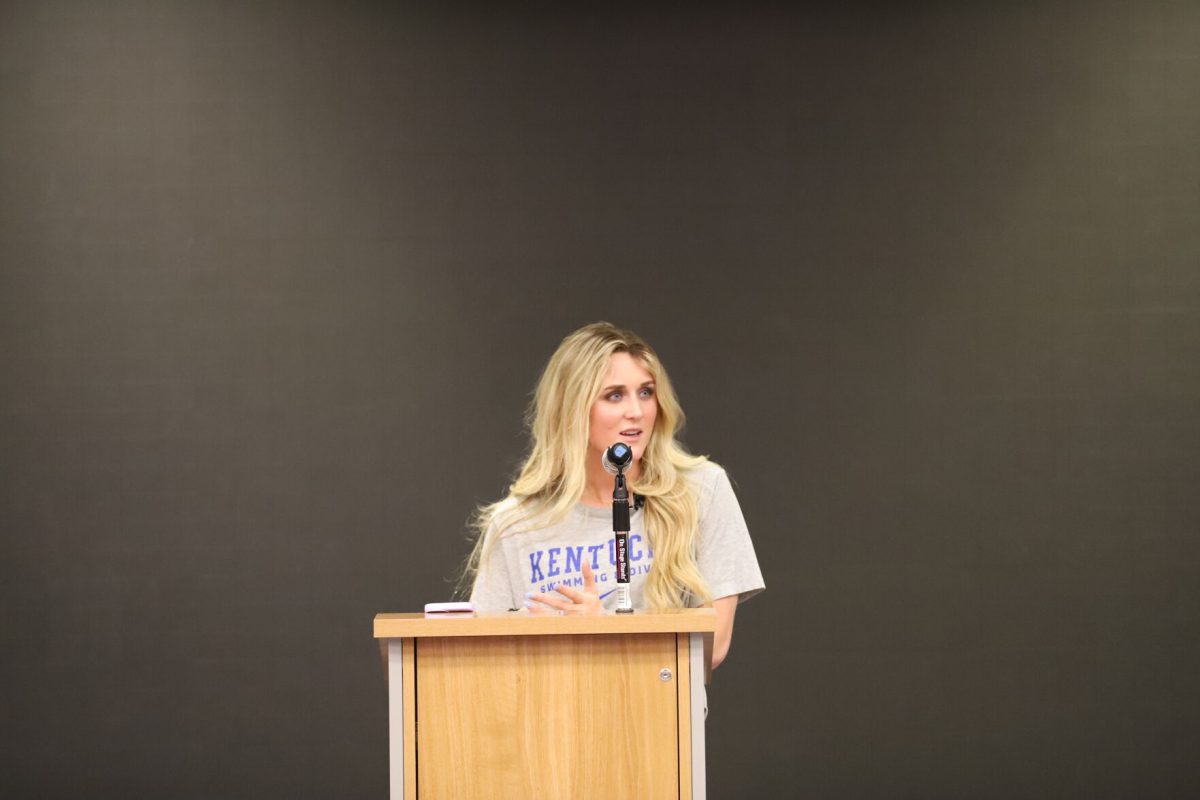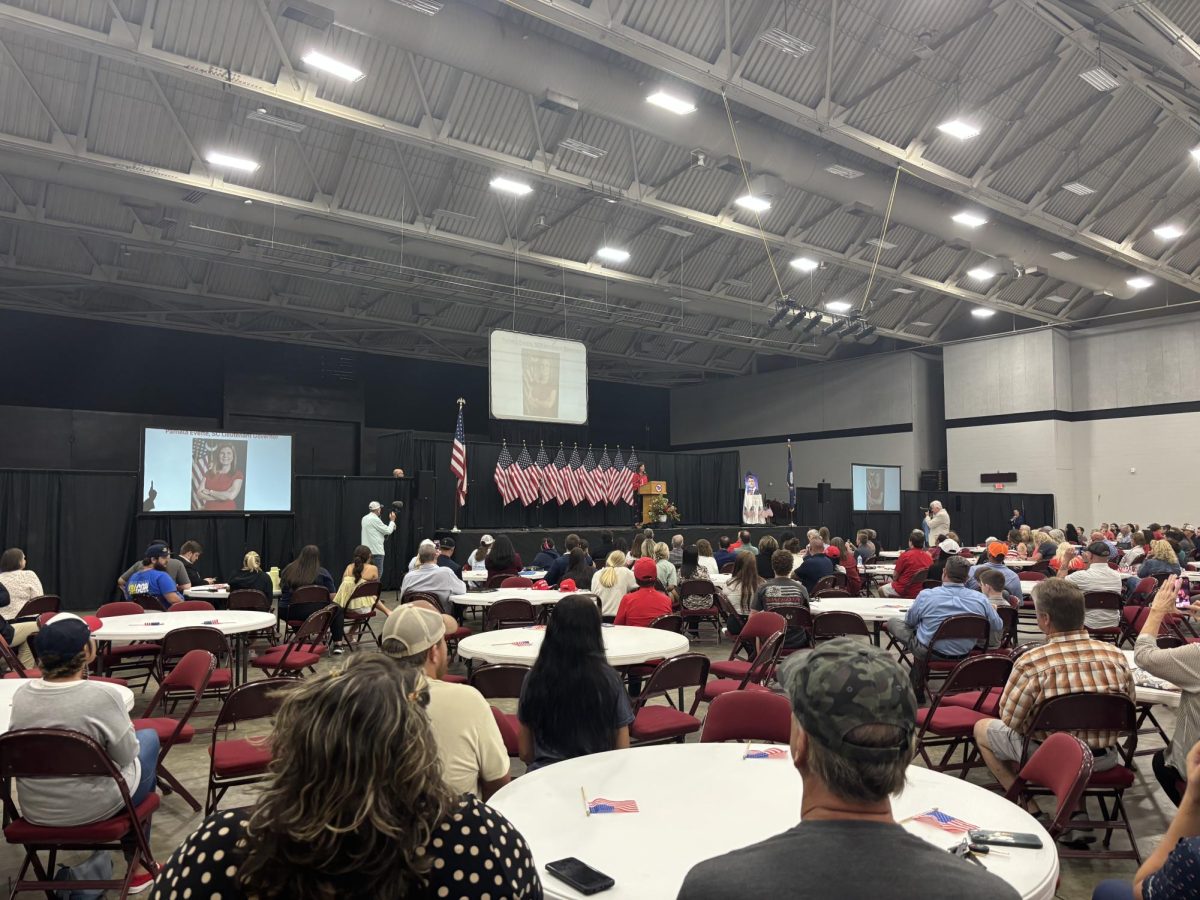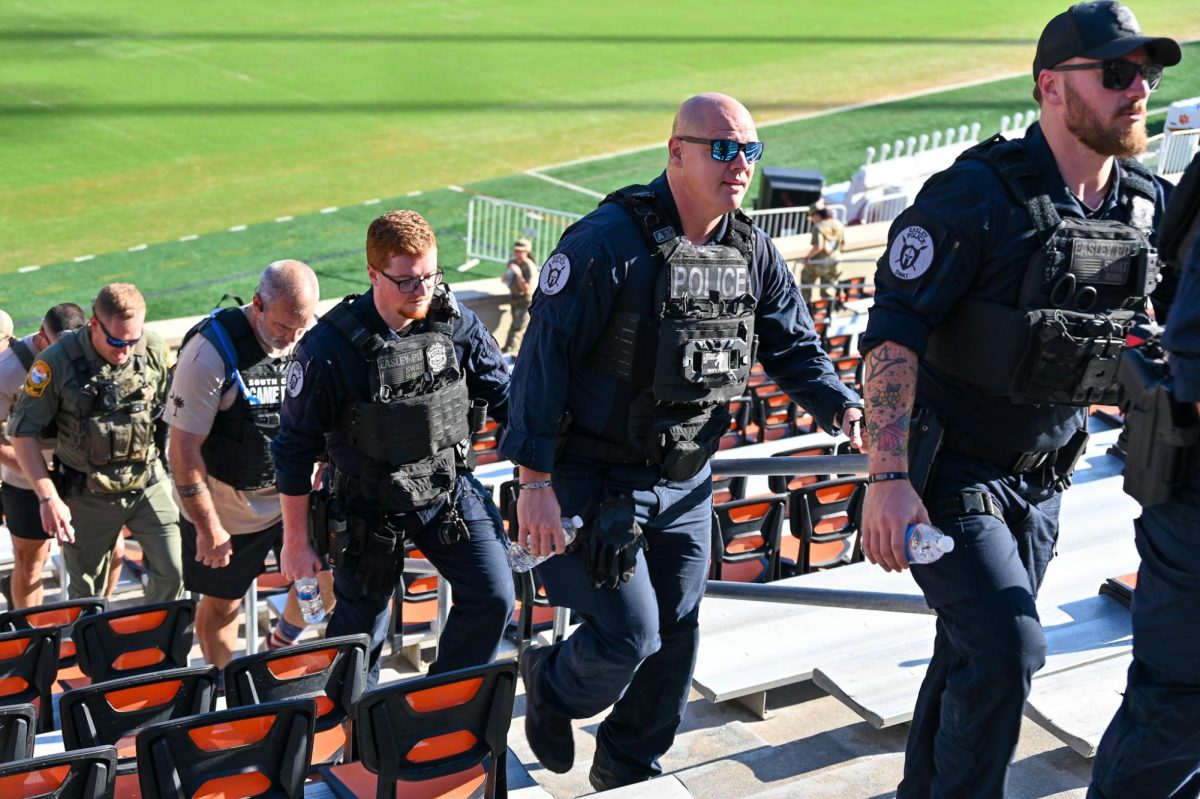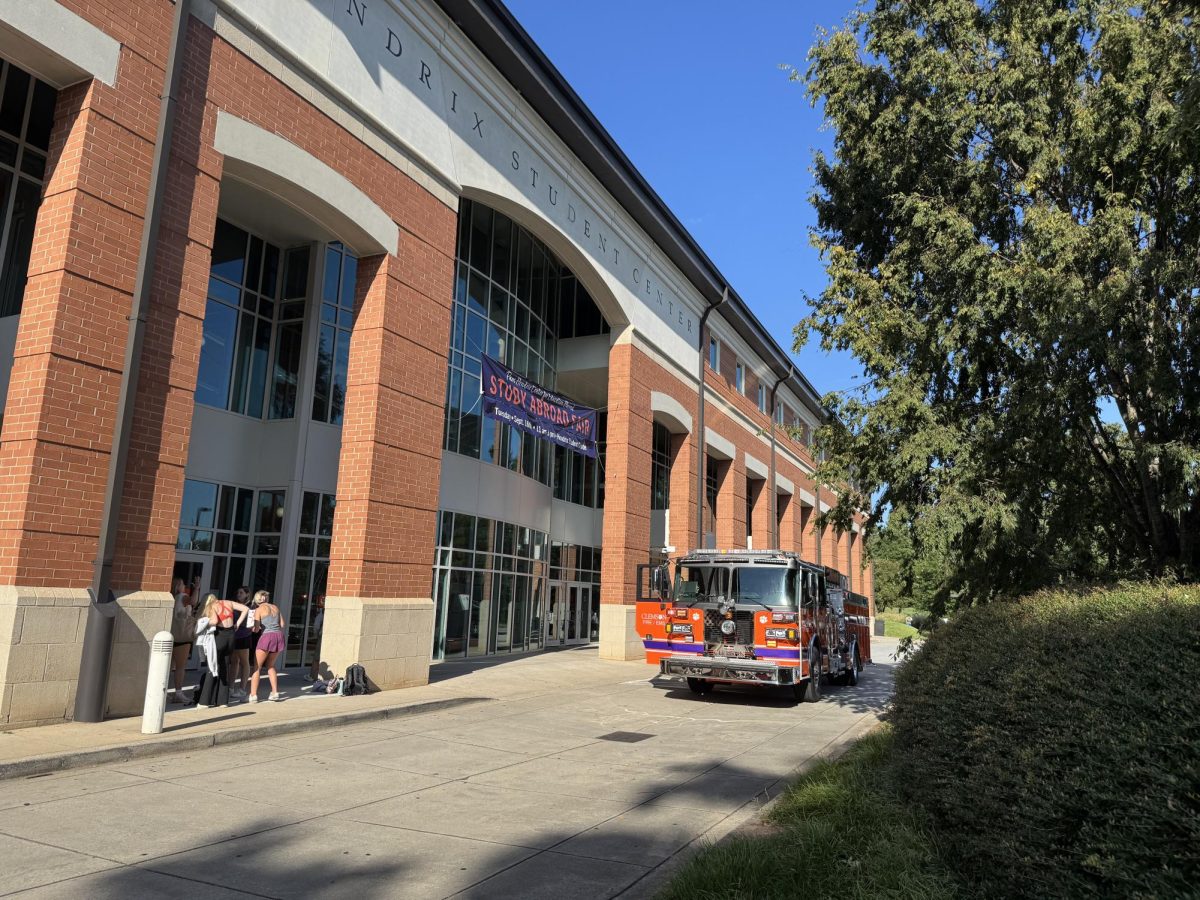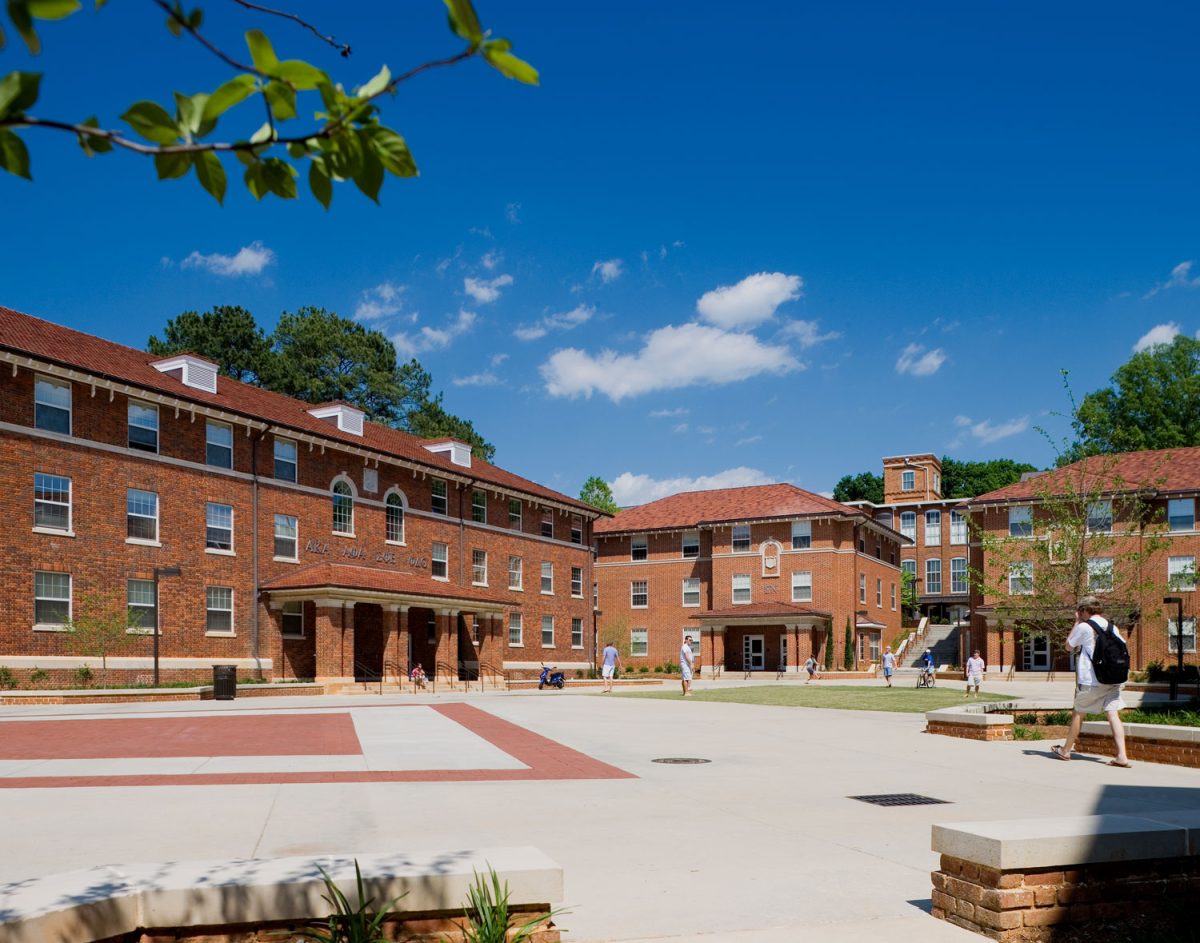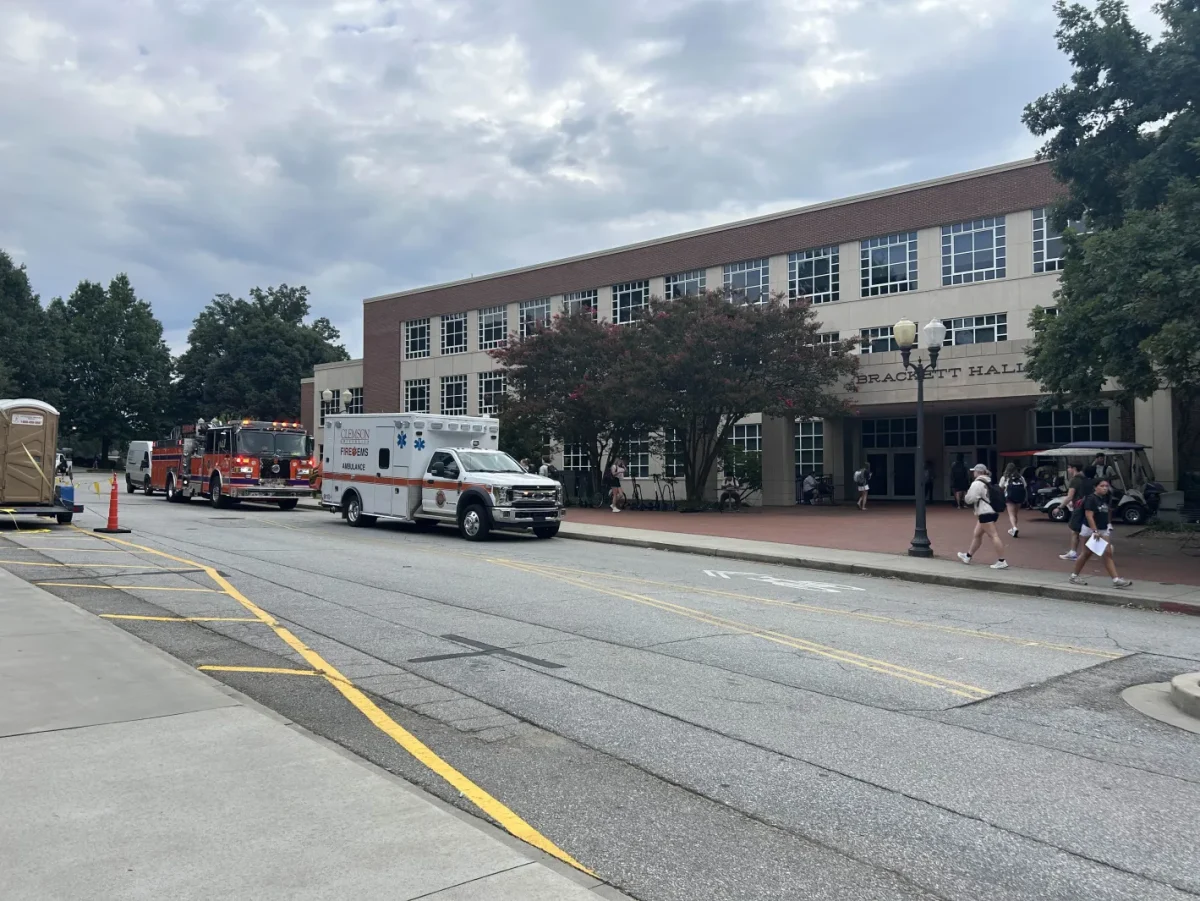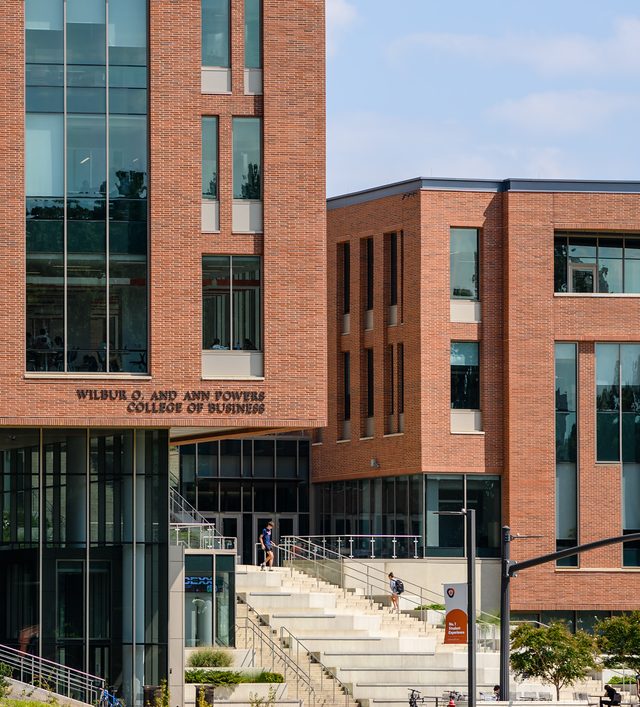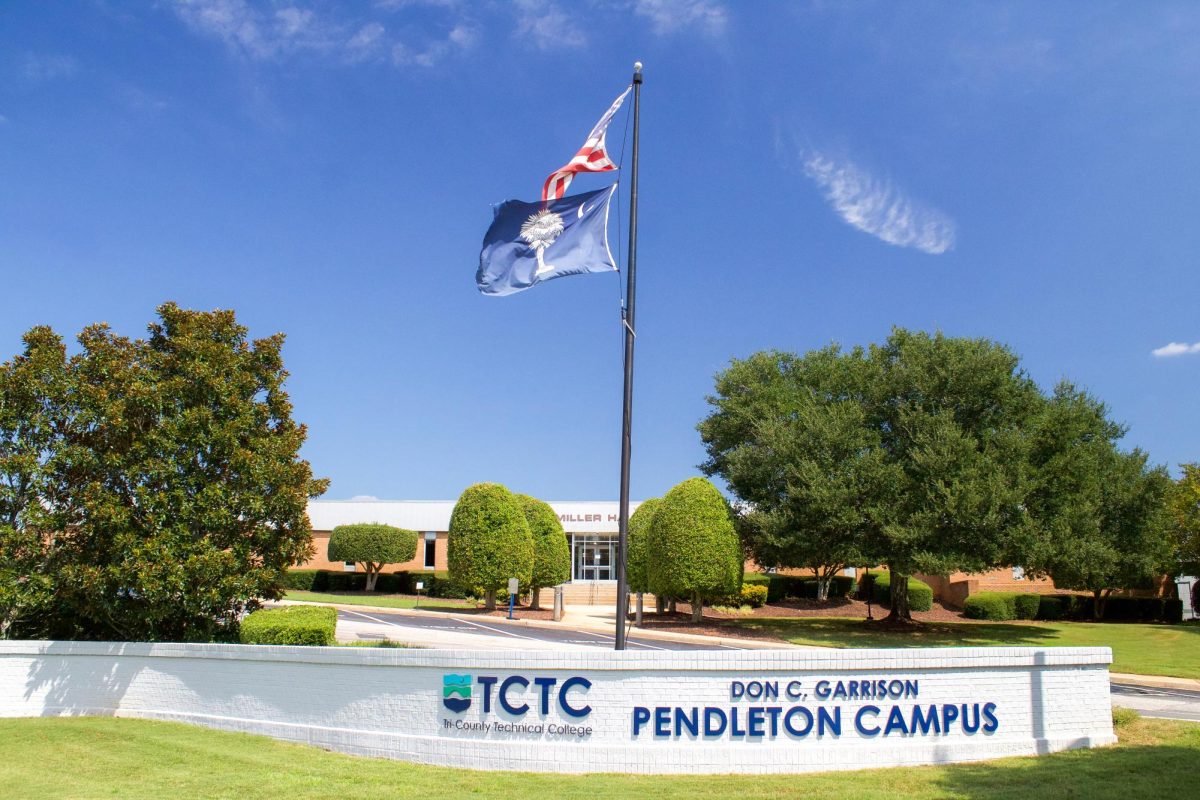Clemson’s chapter of Young Women for America hosted Riley Gaines, former All-American NCAA swimmer from the University of Kentucky, on April 19.
Before gaining momentum as a national activist, Gaines was a 12-time NCAA All-American, a five-time SEC Champion and record holder, and a two-time Olympic trial qualifier.
Gaines’ speech, titled “Save Women’s Sports,” drew a crowd of about 130 people, including students, community members and about a dozen of Clemson female student-athletes.
Gaines began the event by recounting her experience growing up as a female athlete and reminisced about all the time, dedication and effort she devoted to her sport.
Training, swimming and competing were second nature to Gaines, all things she came to know and love, but for herself and other female collegiate swimmers, that all changed the day Lia Thomas entered the picture, according to Gaines.
Lia Thomas, female, formerly known as Will Thomas, male, began competing in the NCAA women’s swimming division in 2021 and quickly dominated the pools. She was leading the country in the 100 freestyle and all the freestyles up to a mile, breaking national records by multiple seconds and blowing everyone out of the water as a newcomer senior from the University of Pennsylvania. These feats were almost unheard of, according to Gaines.
“There was lots of head scratching,” Gaines said of Thomas’ success. “What didn’t occur to me was that this was anything other than a female because I thought that was so far-fetched and would never happen.”
Gaines was mistaken. Learning that Thomas was, in fact, not a natural-born female and would be competing in the NCAA’s swimming championship competition was both frustrating and confusing to her.
“It was just kind of frustration,” Gaines said as she recalled watching Thomas compete in last year’s NCAA championship meet. “Frustration not necessarily with Thomas, but with the NCAA. I was in a state of confusion as to how they saw this as fair.”
Her frustration quickly turned into what she described as a sense of “hopelessness” and “heartbreak” as she watched one of her competitors fall short of finals as Thomas dominated, defeating girls by body lengths.
“Up until this point, I just felt kind of angry. But when Rekha (competitor) lost to Thomas, and I saw how this impacted her, it felt like heartbreak. It felt like being punched in the gut, watching one of my competitors feel this way. So hopeless,” Gaines said.
Later on in the competition, Gaines tied with Thomas for fifth place in the 200 freestyle finals. Following the race, Gaines was informed that Thomas would be awarded the trophy “for picture purposes” at the event, and a copy would be mailed to her at a later date.
At that moment, Gaines realized that no one else was going to advocate for her or her fellow female athletes against what she saw as an “infringement” on the sport and the competition; it was either “put up or shut up.”
“That’s when I was done waiting for someone else to speak up,” Gaines said. “It really hit me that if we, as female athletes, weren’t willing to stick up for ourselves, how can we expect someone else to stick up for us? That’s what’s pushed me over the edge.”
Since tying with Thomas at the 2022 championships, Gaines has been traveling across the nation as an advocate for legislation that prohibits transgender individuals from competing in women’s sports.
Gaines testified in the North Carolina state legislature on Wednesday in support of the Fairness in Women’s Sports Act, which would require athletes to compete on teams that match their sex as determined by “reproductive biology and genetics at birth.”
With North Carolina passing the bill on Thursday, 21 states now have legislation restricting transgender athletes from competing as their self-identified gender, with 16 including collegiate athletics, according to Fox News.
At the federal level, the House of Representatives passed the Protection of Women and Girls in Sports Act, which states that “sex shall be recognized based solely on a person’s reproductive biology and genetics at birth.”
Gaines thanked Clemson for a warm welcome, as she has been met with adversity on other college campuses across the country.
Gaines was physically attacked following a speaking event held by Turning Point USA and the Leadership Institute at San Fransisco State earlier this month.
“They physically assaulted me. I was struck twice,” Gaines said. “I was barricaded in a room for three hours, where they demanded money from me if I wanted to make it home safely, which the Dean of Students was actually negotiating with them.”
There was a large turnout of support for Gaines, and the event was secured by Clemson University police. No instances of violence or protest occurred.
“As a mom and as a former athlete, I can’t imagine what she would be going through,” Danelle Hagen, a supporter at the event, told The Tiger. “To get so far and to be knocked down by a man that’s really sad; that’s something I never want my daughter to go through.”
Gaines will continue speaking at college campuses around the country until she resumes her academic career at the University of Tennessee in the fall.



